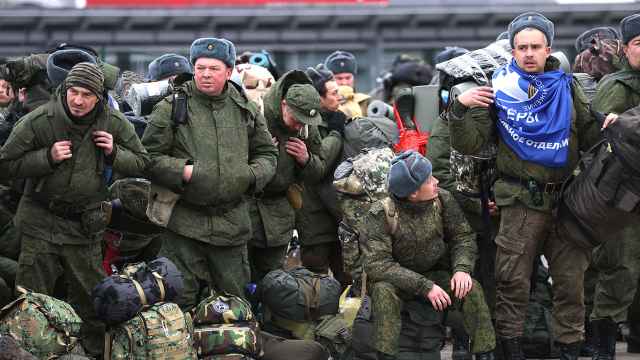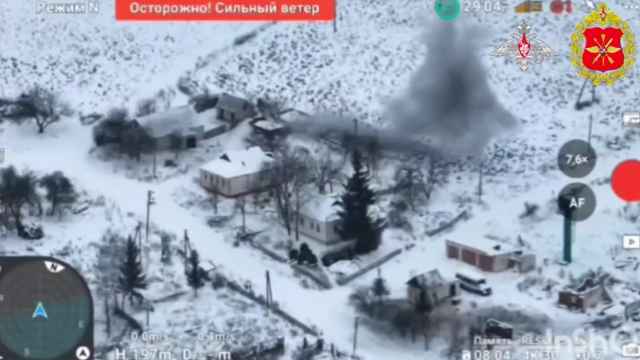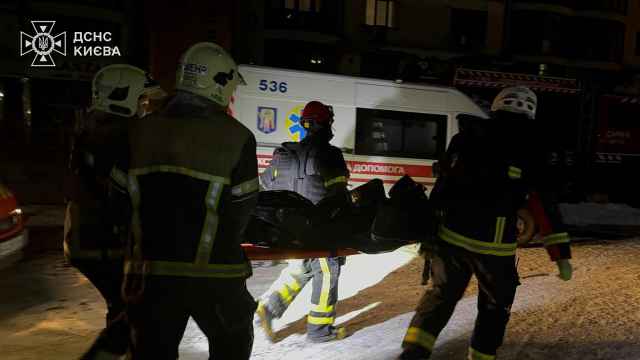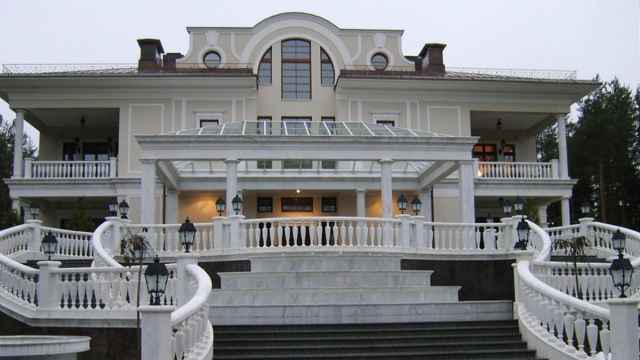PARIS — French bank Societe Generale's estimated 4 billion euro ($5.22 billion) bet on Russia must start paying off this year to stop investors urging the bank to cut its losses, as the economic outlook darkens.
SocGen has for years held up its investment in Moscow-based Rosbank as a key source of future profits that will offset debt woes in Western Europe and rocky post-crisis financial markets.
Time has not been kind. SocGen has yet to deliver on the billions spent building up an 82 percent stake in Rosbank since 2006, integrating its back office and technology platforms, shaking up management teams and cutting more than 2,500 jobs.
This year, Rosbank is expected to post a slight profit for SocGen's international retail arm after a 2 million-euro ($2.61 million) loss last year. It will be under pressure to show that this is the start of a sustainable and growing trend.
"This year they've really got to show they can provide some kind of profitability from the integration," said Espirito Santo banks analyst Andrew Lim, who believes Rosbank ideally needs to be making an annual profit of 120 million euros to prove it is on track.
"I have a net income forecast of only 50 million euros for 2013, so it is still not enough in my view," he said. "If they don't prove it this year, the natural conclusion would be to either close or sell these operations."
Deutsche Bank estimates that Rosbank will make 8 million euros profit in 2013 while JPMorgan analyst Delphine Lee forecasts 18 million euros. While there is clear potential in Russia, this will be the "make or break year," she wrote in a note.
SocGen books the bulk of Rosbank's income at its international retail division. However, some Russian business including consumer loan arm Rusfinance is booked at other divisions and is not covered by analysts' Rosbank forecasts.
Rosbank, which has a near five percent retail market share, faces a tough year. Russia's economy is weakening, loan growth is slowing and the fragmented banking market — heavily dominated by state-owned Sberbank and VTB — has already seen a slew of foreign banks leave.
Russia recently slashed its economic growth estimate for this year by a third, to 2.4 percent.
This may make it harder for Rosbank to hit its 2015 targets, such as 25 percent growth in retail loans and 15 percent growth in corporate loans. Last year, the bank's retail loans grew 11.9 percent while corporate loans stayed flat.
Some investors see a sale as the best way out.
"There needs to be a (Rosbank) sale as soon as possible," said Frederic Rozier, fund manager at Meeschaert in Paris, which owned 0.01 percent of SocGen's outstanding share capital at end January according to Thomson Reuters data.
"These kinds of markets can deteriorate really quickly. It is not in SocGen's interest to wait if a good offer appears."
A sale of Rosbank would bring in 2.2 billion euros for SocGen, or one times book value, according to research by JPMorgan, which has estimated that SocGen has spent four billion euros building up its stake in Rosbank.
Culture Clash
SocGen declined to comment for this story but has always publicly praised its Russian subsidiary's potential, seen as a key plank of chief executive Frederic Oudea's strategy.
"Growth in Russia is our ambition, without forgetting the fact that we still have a lot more work to do," deputy chief executive Bernado Sanchez Incera said in February.
Advisory bankers said SocGen's management had no interest in selling Rosbank right now, given the potentially negative signal it might send out after offloading operations in Greece and Egypt over the past year.
Management also believes it will be proven right in the end, sources said. Even in a slowing economy, Russian households have strong balance sheets and Rosbank will benefit from cost cuts.
Rosbank's cost-to-income ratio fell from 83 percent in 2011 to 80 percent in 2012 and is estimated to fall steadily to 76 percent by 2014, according to JPMorgan research. This is still way below the average of 51 percent at rival Russian banks.
"The bank has almost been fully integrated (into SocGen) and it will not be dropped … There has been a huge effort made over the past two years to get this bank back on its two feet," a source close to the bank said.
The merger process has been long and complex. From an initial minority stake in 2006, SocGen crafted Rosbank into its lead Russian brand by merging it with its SG Vostok unit and then absorbing consumer-loan arms Rusfinance and Deltacredit.
Though free of state control, the integration took longer than usual in part because of the 2007 business divorce between billionaire oligarchs Vladimir Potanin and Mikhail Prokhorov, co-owners of Rosbank's former parent Interros, sources said.
The post-crisis period was also rough. Over 2,500 jobs were cut and local management was frequently at loggerheads with Paris over the merger process, former employees told Reuters.
"There were some very difficult negotiations," said a former executive, who left the bank recently. "SocGen in the end agreed to Rosbank's request to remove some of the prominent French managers who had been in place at the start of the merger … The local team has almost completely changed."
The culture clash has left scars, the executive said, painting a picture of a bank that even today remains divided.
"There is no single team working together," he said. "Generally speaking, the strategy might be clear … But the two sides will spend a lot of time discussing and when they come to a point it doesn't look like a consolidated team decision."
Future Strategy
The hope for SocGen is that its overhauled management team in Russia — led by Rosbank chief executive Vladimir Golubkov and deputy CEOs Francois Bloch and Ilya Polyakov — can somehow write a new beginning for Rosbank.
The bank wants to ramp up its less dominant corporate business by working closely with SocGen's investment bankers, selling a wider range of corporate products including trade finance and cash management and growing in derivatives.
SocGen took part in a recent financing deal for Rosneft and acts as advisor to the Nord Stream gas pipeline's consortium.
But gaining market share is a difficult process in Russia, where the state-owned heavyweights enjoy a funding advantage and implicit guarantee from the Russian sovereign. Their return-on-equity levels are at near 20 percent; Rosbank's are near zero.
Without a big turnaround in fortunes, some believe SocGen will be the latest bank to leave Russia after Barclays, HSBC, Santander and Morgan Stanley.
"Rosbank could be sold once it is turned around," said Christophe Nijdam, analyst at Alphavalue. "Before the crisis, international expansion made sense. The world has now changed."
Related articles:
A Message from The Moscow Times:
Dear readers,
We are facing unprecedented challenges. Russia's Prosecutor General's Office has designated The Moscow Times as an "undesirable" organization, criminalizing our work and putting our staff at risk of prosecution. This follows our earlier unjust labeling as a "foreign agent."
These actions are direct attempts to silence independent journalism in Russia. The authorities claim our work "discredits the decisions of the Russian leadership." We see things differently: we strive to provide accurate, unbiased reporting on Russia.
We, the journalists of The Moscow Times, refuse to be silenced. But to continue our work, we need your help.
Your support, no matter how small, makes a world of difference. If you can, please support us monthly starting from just $2. It's quick to set up, and every contribution makes a significant impact.
By supporting The Moscow Times, you're defending open, independent journalism in the face of repression. Thank you for standing with us.
Remind me later.





